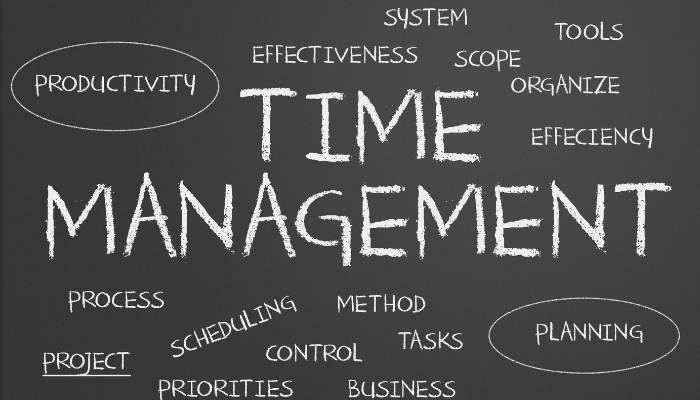33 Top Time Management Tips List For HCPs (Life Hack Advice)
Time management is the most precious soft skill you must practice on a daily basis especially if you are a pharmacist or other healthcare professional. Yet, it seems like there are never enough hours in the day to get everything done.
Well, don’t worry, we’ve got you covered! In this blog post, we’ll be sharing our top tips for managing your time wisely. So read on and start organizing your days like a pro!
This article will be an ultimate guide for Time management to know everything to get the most out of your time on a daily basis to fulfill your task especially if you are working in the pharmacovigilance field in addition to
What Is Time Management?

Time management is the process of planning, scheduling, and executing time-sensitive tasks. It includes setting priorities, tracking progress, and making adjustments as needed. At its core, time management is about taking control of your time so that you can use it more effectively.
There are a few important things to keep in mind when it comes to time management. First, time is a limited resource. You have a finite amount of time to get things done, so it’s important to use it wisely.
Second, time management is not about working harder or faster; it’s about working smarter. By using time management techniques, you can work more efficiently and get more done in less time. Finally, time management is a personal process.
Time management is not a hard skill but it is soft skills
Why time management is important?

Time management is important for a number of reasons:
First,
What works for one person may not work for another. The key is to find time management strategies that work for you and help your specific needs. There isn’t a one-size-fits-all approach to time management; you have to find what works best for you.
it allows us to focus our attention on important tasks and projects, enabling us to complete them more efficiently.
Second,
by consciously controlling how we spend our time, we can avoid distractions and distractions that can often derail our productivity.

Finally,
good time management skills help us to achieve success in both our professional and personal lives. Whether it’s getting promoted at work or spending quality time with family and friends, managing our time effectively can have a significant impact on the trajectory of our lives.
Thus, by practicing effective strategies such as prioritizing important tasks, setting clear goals, and regularly reviewing progress, we can build habits that will make us more efficient and productive in all aspects of life. In the end, this will enable us to be both successful and happy.
What are the Benefits of Effective Time Management?

1. Time management can help you be more productive and achieve more in a shorter period of time.
2. It can help you become better organized and effectively plan and prioritize your tasks to focus.
3. It can help improve your focus and concentration and allow you to complete specific activities and tasks in a timely manner.
4. It can help reduce stress and anxiety, and allow you to have more control over your time to have more opportunities to do more with your time.
5. It is a skill that can be learned and practiced, and with time and patience, can lead to great results.
Effective management is essential to living a productive and fulfilling life. By learning to properly and consciously manage your time, you can drastically reduce your stress levels, eliminate wasted time, and gain control over your to-do list.
Additionally, by being mindful of how you spend each hour of the day, you can ensure that you are making the most of your time and achieving all of your goals.
Whether it’s starting a new project or simply taking some time to relax and recharge, having effective management skills which is one of the soft skills you should perfect will help you make the most of every moment.
So if you’re looking to improve your productivity and take back control of your schedule, start by practicing effective time management today!
What is good time management looks like?

It is the ability to complete multiple tasks within a given timeframe. This often requires creating a to-do list and prioritizing the importance of each task. It is also important to consider how much mental energy each task will require.
For example, it is usually best to complete simple tasks when you are feeling tired and to reserve complex tasks for when you are feeling fresh. By learning to manage your time effectively, you can make the most of your day and get more done in less time.
What are the 10 time management strategies of Highly Effective People?

1- Establish Priorities and Plan Appropriately
You can make plans to be successful by taking a step back from your list every night before bed.
You may find it helpful if you take the time each morning and put together an agenda for tomorrow with all of the people who need input, what they are supposed to do (or accomplish), and where things fall into place at certain points throughout each day/night duration depending on how complicated or simple this particular situation might turn out being respectively.
Why does something need attention right away instead of later down the road when there could potentially still be solving problems even after doing everything possible already!), etcetera
2-Use a Planning Tool
You can’t expect to be productive if you don’t have the tools necessary.
There are millions of programs and apps out there that will help make your life easier, so why not take advantage?
Even adding one simple tool could save hours each week in work wasted on unneeded tasks!
I recommend this tool Monday.com,
3- Know How You Spend Your Time.
A time log is a way to track how you spend your time so that you can better understand where it goes.
Determining how you spend your time and what is important to you can help create a plan for what to do next.
4- Organize your life.
Here’s a great way to get organized. Set up three boxes (or corners) labeled ‘Keep,’ ‘Give Away’ & toss.’
Sort items into these categories- keep what you need, for now, give away the rest if it doesn’t fit your needs anymore but is still useful then trash or sell them off!
You’ll be able to see at any given moment which ones have more than just clutter in them because there will always only ever belong to two types: valuable stuff(keep), garbage/junk(toss).
It might sound daunting but once everything has its own spot things become much less complicated.
5- Appropriately schedule…
Schedule small tasks such as drafting an email or creating a grocery shopping list for long commutes.
You can also read, and watch webinars/podcasts while waiting on calls and appointments – avoid playing games! Schedule about three-quarters of your day to allow room for creative activities like planning out what you want future adventures to look like; it’ll really help rejuvenate yourself when coming back from work (or any other busy schedule).
Must use tools to figure out your daily tasks to add them to-do list to complete tasks on time and to spend time on each task to finish as you should do.
6- Don’t be a procrastinator.
Procrastination is a huge issue for many people, and it can often be Stop the cycle of putting off tasks that seem unpleasant or overwhelming.
You might think about “eating your big frog first thing in the morning” to help with this problem–a quote commonly attributed to Mark Twain says “If you’re assigned eat one today then do what needs doing.”
For tackling unimportant tasks: the “big frog first” strategy
The big-frog approach is to tackle your biggest, most daunting task as soon as you wake up in order to get rid of it quickly before anything else can distract you from getting work done throughout other parts of your day.
If that’s not possible or doesn’t feel realistic enough then try breaking down smaller segments (preparatory) which will help with motivation because once they’re completed give yourself rewards!
That is how to avoid procrastination.
7- Multitasking should be avoided.
When it comes to getting things done, multitasking is probably the last thing you want to do. This is because multitasking can be a huge waste of time and energy, as well as being much less efficient than focusing on one at a time.
Studies have shown that when we attempt to do different tasks simultaneously, our brain is not actually able to effectively process them all.
As a result, urgent tasks take longer to complete and any specific tasks may be done poorly or even forgotten altogether. Furthermore, constantly switching between tasks also takes up valuable time that could otherwise be spent completing individual tasks more quickly.
In order to maximize your productivity and avoid falling behind in urgent or important tasks, it is best to avoid multitasking whenever possible.
Instead, focus on completing each one at a time, taking the time needed to do each one well instead of trying to juggle several urgent responsibilities at once.
Not only will this help you get more done in less time, but it will also ensure that all of your work is high-quality and up to your usual standards. After all, in today’s fast-paced world, every second counts – so don’t waste precious time by multitasking!
8- Divide Large projects should be broken down into smaller chunks.
If you find yourself overwhelmed on a large project, break it down into smaller tasks and timelines. This will allow for more flexibility in your approach as well as increase the likelihood that everything gets completed successfully!
9- Identify and prioritize your daily, weekly, and monthly tasks.
One way to stay organized is by making a long list of every single task or duty you have in your job.
You can then spend some time breaking these down into daily, weekly and monthly tasks so that it’s easier for yourself from day to day as well when completing everything on the list during each respective session because once they’re all broken down into their individual details – which will probably be similar anyway depending upon how much time needs to finish, you’ll know what needs attention first next week, or three months out.
Along with planning sessions where priorities are established ahead of schedule!
10- Determine when you’re most productive.
One of the most important things to consider when managing your time is what type of person you are.
Are they early birds or night owls? This will help decide how best to use each individual’s schedule and get more done in fewer amount days than others without as much sleep lost due to them staying up later than usual while working on projects after lights out
You can also choose between these two phrases: A “morning person” who’s always ready for anything at 6 am; Or somebody whose energized mood varies depending on if it is lunchtime yet (a pretty common occurrence among many adults nowadays!)
11- Keep Your Physical & Mental Health
- Take a short walk on a daily basis
- Get enough sleep at least 7:8 hours per day
- Hang out with less stress group of people
- Get unlimited access to relaxing music
- If needed take a longer break to refresh your mind
- Join tools that will provide good control of your time.
What are the types of Time Management Techniques?

1- Pareto Analysis (80/20 rule)
2- Pomodoro Technique
3- Eisenhower Matrix
4- Parkinson’s Law
5- Time Blocking Method
6- Getting Things Done (GTD) Method
7- Rapid Planning Method (RPM)
8- Pickle Jar Theory
9- Eat That Frog Technique

What are the 4 Ps of time management For Project Management?

1- Prioritisation
2- Planning
3- Productivity
4- Positivity
What are the 4 Ds of Time Management (Eisenhower Matrix) For Time Managers?
1-Do,
2- Defer (Delay)
3- Delegate
4- Delete (Drop)
Time management Skills vs Time management Techniques

Time management skills and time management techniques are two different but related concepts the basic idea is to understand how to set fixed time on a daily basis to take immediate action for the highest priority tasks to set how much time you can spend before set deadlines.
Time management skills refer to the actual abilities and behaviors that allow us to effectively manage our time, time management techniques refer to the various tools and strategies that we can use in order to better manage our time.
One of the main differences is that time management skills are more internal in nature. These skills include qualities like discipline, self-awareness, persistence, and organization, which allow us to structure our time purposefully and make the most of our available hours.
On the other hand, time management techniques are generally external strategies or strategies that require specific actions on our part.
These might include things like setting fixed work hours or staying away from time-wasting activities like social media browsing or excessive internet surfing.
Another difference between time management skills and time management techniques is that time wasters are often a common factor for both of them.
Whether it’s habits like constantly checking social media channels during work hours or getting distracted by unimportant tasks, there is always something preventing us from making the most out of our time.
However, it is important to note that different people will have different struggles when it comes to managing their time to have successful time management
Work Smart and Spend Time Wisely With These 32 Time Management Tips

1- To make your day last longer, get up early.
By waking up a little earlier and making your day longer than others, you can increase the amount of time that is set aside for sleep.
This will help ensure optimal energy levels throughout each night’s rest as well as give you more opportunity in life to do things like exercise or meditate which are important hobbyists‘ pursuits!
2- Set SMART objectives
One of the most important skills is learning how to set effective objectives. Without clear objectives, it can be difficult to manage your time and stay on track.
The key to setting effective objectives is to make sure they are SMART.
SMART stands for Specific, Measurable, Achievable, Realistic, and Timely. Let’s break each of these down:
– Specific:
Objectives should be specific and clearly defined. For example, “I want to learn how to use a new software program” is more specific than “I want to improve my computer skills.”
– Measurable:
Objectives should be measurable so that you can track your progress. For example, “I want to learn how to use a new software program” is more specific than “I want to improve my computer skills.
” To make it objectively measurable, you could say “I want to complete X task in Y amount of time.”
– Achievable:
Objectives should be achievable. In other words, they should be realistic given the time and resources you have available.
– Realistic: Objectives should be realistic given the time and resources you have available.
– Timely: Objectives
An important part of making SMART objectives is ensuring that they are timely.
This means that your objectives should have a specific deadline attached to them. This will help ensure that you are constantly moving forward.
3- Use time tracking software.
Whether you’re self-employed or working for someone else, managing your time effectively is essential to your success.
Time tracking software can help you exercise control over how you spend your time, so you can make sure you’re using your time in the most productive way possible.
By tracking your time, you can identify patterns and areas where you may be wasting time. You can then make adjustments to ensure you’re spending your time in the most effective way possible.
Time tracking software can help you manage your time more effectively, so you can get the most out of each day.
4- Distracts should be avoided at all costs.
If you want to manage time effectively, you need to exercise control over how you spend your time. That means eliminating distractions and focusing on the task at hand.
When you’re trying to work on a challenging project, for example, every minute of time spent on distractions is a minute that could have been spent making progress. The same goes for managing your time on a day-to-day basis.
If you find yourself constantly switching between tasks or checking your phone every five minutes, it’s time to cut out the distractions and focus on what’s important. By eliminating distractions, you can make the most of your time and get more done in less time.
5- Prioritize quality over quantity
One of the most effective time management tips is to prioritize quality over quantity. This means that you should focus your attention on the tasks that are most important, rather than trying to complete as many tasks as possible.
By taking the time to complete a task properly, you can avoid having to go back and fix mistakes later.
In addition, by focusing on the tasks that are most important, you will open up more opportunities to complete other tasks.
As a result, prioritizing quality over quantity is an effective way to improve your management skills.
6- Take frequent short rests
As anyone who has ever tried to get through a busy day knows, It is essential. One simple but effective way to manage your time is to take frequent short rests. Fixed periods of rest throughout the day can help to reduce stress and increase productivity.
To make the most of this trip, try making a to-do list at the beginning of the day and then taking a break after every task is completed. This will help you to focus on each task and avoid becoming overwhelmed.
And, by taking breaks regularly, you’ll also spend less time overall on each task.
7- Look for motivation
It is safe to say that everyone struggles with managing their time at some point or another. Unless you are exercising control over your time, it can easily slip away from you. One effective tip is to look for motivation.
This can be something as simple as setting a goal for the day or week. When you have a specific goal in mind, it is easier to stay focused. Additionally, looking for motivation can help you to better allocate your time.
If you know that you need to complete a project by a certain date, you can work backward and map out a timeline. This will ensure that you are using your time in the most efficient way possible.
Finally, by looking for motivation, you are more likely to stay motivated throughout the day. If you find yourself losing focus, take a few minutes to refocus on your goals. These simple steps can make a big difference in how productive you are with your time.
8- Closely Related tasks should be grouped together.
When it comes to effective time management, one of the most important strategies is to group related tasks together.
By doing this, you can ensure that you are exercising conscious control over your schedule and giving immediate attention to the things that matter most.
Whether you are tackling daily errands, working on long-term projects, or simply trying to keep up with all of your commitments, grouping related tasks can help you stay focused and organized.
In fact, some experts even argue that how closely related tasks are grouped together is perhaps the single most important factor in managing your time effectively.
After all, if you design your schedule in such a way that each task has an unbroken block of time devoted to it, then you will be able to maximize your productivity and minimize distractions throughout the day.
So whether you are creating a task list or simply trying to organize your daily life, keeping related items close together can be an incredibly powerful tip.
9- Audit Your Time
The simplest way to do a time audit is by using an app like Toggl, which offers free versions for all devices.
You can track everything you do in order to get accurate pictures of how long tasks actually take and this will give insight into where your precious hours go each week!
10- Complete hard task first
The first few hours of work are often the most productive. This isn’t because we’re more focused, but rather our brains have less excess energy to spend on other tasks when they wake up in the morning than at any other point throughout their sleep cycle.
To take full advantage and get your highest possible productivity level out of this window period (which typically only lasts about two or three), start engaging with mentally demanding projects right off bat – these will give you enough mental clarity for creative thinking so that by around 8 am PST/ intermediary time.
11- Set a time frame for a task
Parkinson’s law states that tasks will take as long to complete, or longer if you give them more time.
Setting constraints on your work in advance and focusing exclusively on one at a time instead of juggling many different responsibilities simultaneously should help improve efficiency by limiting the amount of distracted thinking required for any particular project-saving both money and precious hours each week!
12- Check the Done Task
When I finish a task and check it on my to-do lists I feel so motivated and excited as I move forward a step to finish my day in a productive way.
13- Make a system for how you can finish tasks effectively
One of the most effective tips is to make a system for how you can finish tasks. By knowing what tasks need to be completed and in what order, you can minimize distractions and better utilize your time.
This can be as simple as creating a to-do list each day or keeping a running list of priorities. You may also find it helpful to break down larger tasks into smaller steps that can be completed over time.
Whatever system you choose, make sure it is realistic and achievable so that you can stick to it. With a little planning and effort, you can learn to effectively manage your time and get more done.
14- Execute the Swiss cheese method.
You know when you’re faced with a large task and feel overwhelmed because there is no end in sight? It can lead to procrastination or loss of focus.
The Swiss cheese method helps break down these intimidating projects into smaller tasks, which makes them less daunting and more likely for completion on time!
15- Finish task early than the deadline
Planning your week ahead can help you get more done in less time. It also eases the transition from a carefree weekend mindset to a Monday morning “work brain.”
On Sundays, take some minutes before heading into work for an organized and planned week’s worth of tasks that need attention!
Schedule low priority or non-urgent projects onto Fridays so they don’t crowd out other important commitments during this hectic weekly cycle From energy levels changing throughout each day try setting up specific times where certain jobs will be completed: weekends are good examples as well
Best Time Management Tools & Apps

Engagebay - Asana
Monday - Smartsheet
- Zoho Projects
Conclusion

Time management skills are essential for anyone looking to be productive and get more done. By following the tips listed above, you can learn how to better manage your time and improve your efficiency.
And the

